Eric Lichter
Musical Mondaze
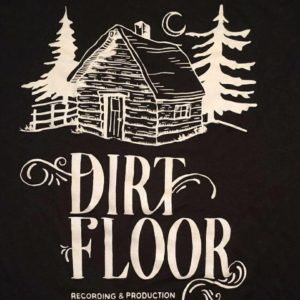 You don’t have to be in a funk just because it’s Monday. Instead, get funky!
You don’t have to be in a funk just because it’s Monday. Instead, get funky!
TrunkSpace brings you another edition of Musical Mondaze. This week out we’re chatting with Eric Lichter, a singer/songwriter turned sought-after producer who founded Dirt Floor Recording & Production. When not making records for some of the most talented folk and Americana artists performing today, the Connecticut-based Lichter is still writing and recording his own material. He hopes to finish his third album by June of this year, though he admits that his art tends to take a back seat as he continues to help others with theirs.
TrunkSpace: Before we jump into your career as a musician, tell us a little bit about Dirt Floor. For those who don’t know, how did it come to be?
Lichter: Well, Dirt Floor came to be, officially, in Spring of 2006. Before that I was a singer/songwriter, which I still am, although I didn’t know I was a multi-instrumentalist at the time… or that I had any desire to be in the production end. I was in New York City and, you know, the music scene changed a lot in that time. It became about boy bands and Brittney Spears. The type of music that I was always into, which was Neil Young and Crosby, Stills & Nash, and singer/songwriter-y type stuff, wasn’t really popular anymore. So, I quit music for awhile and got married and my life kind of changed. And then early on, right before my daughter was born, I really made the decision to commit myself to art… to creating, knowing that it would probably be a long haul and financially it would not have been the smartest move. So, I bought some equipment. It was pretty rinky-dink at the time and I made my own record, called “Chorduroy” just for me. And what happened was, people started to hear that record and they really liked it and wanted me to produce their record, which I started to do. I didn’t know the term producer. I didn’t know that that’s what I was doing. I didn’t know that it was even something I could do, but, basically that tag kind of stuck as the years went on. I started to work with Ian Fitzgerald (featured here)… he was the second year that I was doing it and we did his record “Empty Like the Lion Den,” which was three albums ago. And then I started to work with MorganEve, my friend who was in Brown Bird, and a lot of folks from Boston and Rhode Island. And so that’s where that all started.
TrunkSpace: So the becoming a producer aspect of your career just kind of happened serendipitously?
Lichter: It did. I mean, even right now, I sit here and I wonder how the hell it happened because I didn’t really know how to play a myriad of instruments when I was doing the singer/songwriter thing. I was a troubadour. I was trying to be Jackson Browne, you know? And suddenly I was playing drums and keyboards and pedal steel… and basically it was by default because if I was bringing in somebody for a session and I had a drummer coming in, it suddenly became all about the drums. And you’re taking hours just to get the drums going, so I learned how to play all of these things just to keep things efficient and I knew that I didn’t want any of these instruments to be like a lead instrument. I wanted them to serve the song and serve the purpose for the genre that I was working in.
TrunkSpace: We’d imagine that it would also open the door to creativity because if you suddenly get an idea for a sound that could improve a song, you don’t have to call that musician in to try it out. You can just jump right it and give it a go.
Lichter: Exactly. I like to think of it as, what I was doing was really being a mirror for the artists. I was their hand. But then what started to happen was that people wanted my own ideas… my own input and the interaction and true nature of the collaboration. Suddenly it became a collaboration and I didn’t really have to explain myself after awhile. I no longer really needed to do that and it just sort of seamlessly began to unfold.
TrunkSpace: So as it started to come together, did you put a vision in place for Dirt Floor?
Lichter: I did. I sort of started to model it a little bit after what Ethan Johns was doing for Ryan Adams, you know, when Ryan Adams made “Heartbreaker” and “Gold.” And, there are a few other producers out there who were doing the same thing, like Jonathan Wilson on the West Coast. My sound became, sort of the Laurel Canyon sound, but in New England. I was really mining that sort of Southern California sound. I wasn’t trying to sell a studio. That was the thing I was selling initially, but as it became apparent to me that folks were really coming for what I was doing, I wanted to put less emphasis on the studio itself and more on what I was doing, so that way I could go anywhere and do it. I could take a plane and go out to California and produce somebody’s record. So, it wasn’t about this location and I’m not selling a recording studio. If I was going to carve out my own niche on a smaller scale with a low overhead, it was going to be me trying to sell my own services and my own art. I’m right now on the cusp of really finally being able to do that, which I’m thankful for.
TrunkSpace: Looking at the artists you’ve worked with, and I know this is a cliché to say but it really seems true here… it feels like those who have worked with you have sort of become a family of musicians.
Lichter: It is. You’re right. It’s not a cliché at all because it really is a family and I’m amazed at how the family grows. It’s like just when you think you’ve got enough family, it gets even bigger. And what I really like to do is put people together, like if I’m playing with somebody and they’re looking for a pedal steel player somewhere, I know them, so I can put people together in bands and something really wonderful has sort of sprung forth from the whole Dirt Floor experience. Like I said, it kind of blows my mind still… every day.
TrunkSpace: So as you started to roll forward with Dirt Floor and were looking at what you could bring to other artists, did you apply your own experiences as a musician to the production 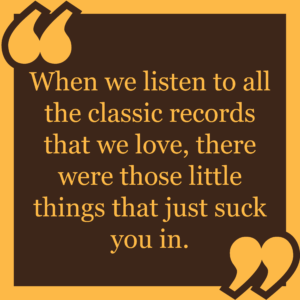 aspect and look at it from sort of both sides of the studio glass in terms of a POV?
aspect and look at it from sort of both sides of the studio glass in terms of a POV?
Lichter: Oh, absolutely! When I started this to begin with, it was basically my knee jerk reaction to my experiences everywhere else… as an artist and being in New York City. It was very cold and sterile types of environments and nobody really listened to what I was looking for. I was very particular. I didn’t want things to be too perfect. I wanted the imperfections that made the music so special. When we listen to all the classic records that we love, there were those little things that just suck you in. This was at the dawn of Pro Tools and really, computer-based music, so everyone was so hung up on getting things so perfect that they weren’t making “After the Gold Rush” anymore.
TrunkSpace: The problem with perfection is that you lose those beautiful imperfections that sort of encapsulate life.
Lichter: Exactly. And so when I started it, it was really to retain that. And there were detractors at the beginning… people who I knew who were actual recording engineers and they would say, “You can’t do that… you don’t know what you’re doing.” Which, I guess I still don’t from the technical perspective, but I know how I want things to sound and it really was sort of a guerrilla approach to things, which has sort of worked.
TrunkSpace: In helping and nurturing other artists, have you had to put your own music on hold at times in order to focus on Dirt Floor?
Lichter: Oh, absolutely. It’s a daily battle. I’m getting married in June and I wanted to finish this third record that I was working on and I started it like five years ago now, so that’s how long it’s taken me. And I have a studio in the house. I mean, I’m in it, but there’s so little left in the tank at the end of the day. I’m drained, but I’m happy. That’s the rub. I’m very, very content. And I am slowly starting to dig myself out of the hole. A lot of these artist who I work with, who are my friends and family, they’re also very supportive of my own music and they’re the ones saying, “Listen, man, don’t forget that part of yourself.” (Laughter)
TrunkSpace: Explain to readers what your journey has been as an artist. How has your music evolved sine your early days of songwriting to now?
Lichter: Oh boy… well, I started in high school. It was because I had a soccer coach who was also a band teacher and he made a bunch of us take chorus. (Laughter) And, it was the dorky thing to do and I didn’t want to do it because I didn’t really want to risk being made fun of, but I wound up getting sucked into it. I was brought up on my parents’ record collection, which was that first Crosby, Stills, & Nash record and “Sweet Baby James” and Dan Fogelberg and Carole King and all that stuff. So, I really loved that stuff and never really strayed from it. So, I started writing songs and singing and laying harmonies down on a 4-track and trying to sound like the Eagles or Crosby, Still, Nash & Young. So it started then and then I had a couple of bands in my 20s, which sucked. They were sort of Hootie and the Blowfish style.
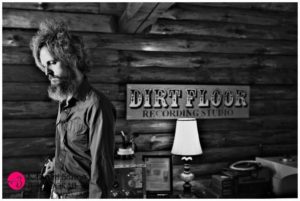 TrunkSpace: Doc Martens and flannels?
TrunkSpace: Doc Martens and flannels?
Lichter. Yeah! Flannels wrapped around my waist. You know, that whole thing. (Laughter) And then in the late 90s… my brother and I were on Martha’s Vineyard for a long time and we became really close with Carly Simon and James Taylor’s kids, Ben and Sally. So, we wound up sort of taking a gig with Carly, doing some background vocals stuff. So we thought we had it made at that point. And a little bit after that, I had my sort of first record company experience. I had Mercury, under PolyGram, was really interested in me at the time and it was just before the whole Brtiney Spears thing hit. It was post-Lilith Fair so they were looking for male songwriters and I remember Duncan Sheik and Shawn Mullins and a few of those types… so I was one of those. I kind of slipped in just under the radar there. They put me in a recording studio and I had really never been in one before. I didn’t really care about it very much, but they didn’t really let me play guitar. They were like, “Don’t worry about that. We’re going to leave that to somebody else. You just sing.” And I remember they put drum loops all over my stuff. It really sounded like Shawn Mullins or something… kind of slick and it wasn’t at all what I wanted. Ultimately I got dropped because the company was bought out by a bigger corporation and I gave up music for a long while and worked the corporate end of the record company to try and work off some of the debt that I incurred through the advance.
TrunkSpace: You mentioned your musical influences. Do you try to obtain that sort of throwback singer/songwriter sound with your own music?
Lichter: I don’t even try to do that. I think it just permeates. I mean, I have definitely tried to NOT do that, but in my mind I’m making an Iron Maiden or Thin Lizzy record, but it comes out sounding like Dan Fogelberg. There are times when I try to outrun it, and I fail every single time, so I just have to resign myself to the fact that I’m a pretty mellow guy and that I make mellow music. (Laughter)


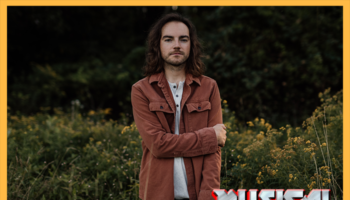
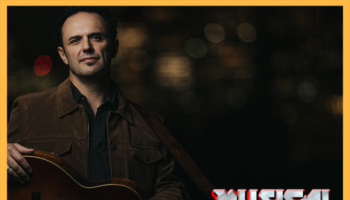



Great Singer
incredible and brilliantly written…and ya can just feel and taste the sweet granola crunch of the rawness to the story. kudos to the writer, great questions! as i’ve known Eric since 2006 he’s has always been like a long lost brother to me.
the SOUND he has place on many great records is like a … signature.
Andrew Wallach
the Spinning Head Studio
Clinton, CT